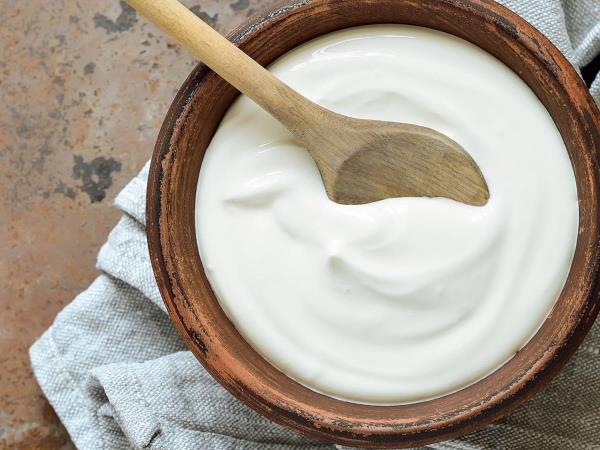1. Yogurt Can Help Achieve Better Skin – Without Expensive Creams
Many people spend hundreds of euros on creams, exfoliants, serums, and masks that promise skin rejuvenation. Yet, a spoonful of yogurt can do more than we think. Yogurt contains lactic acid, a natural substance also used in some dermatological procedures for chemical peeling - a process where dead skin cells are removed from the skin, revealing a fresher layer of skin.
This lactic acid gently dissolves the bonds between dead skin cells, leading to smoother and more radiant skin. A study published in the Journal of Cosmetic Dermatology showed that regular use of lactic acid reduces fine lines and improves skin tone. Additionally, signs of redness and acne were reduced.
If you want to try it yourself, mix two teaspoons of plain yogurt and one teaspoon of honey. Apply it to your face, leave it on for 10 minutes, and rinse off. Your skin will be soft and refreshed.
2. Yogurt as a Natural Metal Cleaner
This may sound like advice from an old cookbook, but it's true: yogurt can also be used as a cleaner for brass items. Why does it work? Once again, the answer is lactic acid. It reacts with surface oxides and removes dark stains on brass, restoring its natural shine.
Scientists from the University of Illinois also tested the cleansing effects of different acids on metal alloys. Lactic acid proved to be very effective while also being gentle - meaning it cleans the metal without causing damage.
We recommend you conduct a small experiment at home. Place some plain yogurt in a container, put in a greasy or tarnished brass item, wait for 30 minutes, then wipe it with a cloth. You will be surprised by the results.
3. Yogurt for Better Digestion – Proven to Work
The third reason to include yogurt in your daily diet is more well-known: it helps with digestion. Yogurt contains probiotics, the good bacteria that reside in our intestines and help things flow smoothly.
If these bacteria are lacking, it can lead to constipation, bloating, or even diarrhea. In one of the largest studies conducted at the Harvard T.H. Chan School of Public Health, it was found that regular consumption of fermented dairy products, like yogurt, helps reduce constipation by 24% in adults and as much as 40% in children.
But here's the catch: not every yogurt is a probiotic. The packaging must indicate that it contains at least 1 billion CFUs – colony forming units, meaning the bacteria are still alive and active in our bodies.
The best yogurts for digestion are those that contain Lactobacillus acidophilus or Bifidobacterium cultures, as they have the most impact on gut flora. Check the packaging - it is often written in fine print.
4. Yogurt Protects the Heart – Proven Benefits
Perhaps the biggest surprise is that yogurt also has a very beneficial effect on the heart. And this is not only because of calcium, but also due to the combination of proteins and minerals that help regulate blood pressure.
The American Heart Association published a study in 2018, where they followed 55,000 women and 18,000 men for over 10 years. They found that those who ate yogurt at least twice a week had a 20% lower risk of developing high blood pressure.
Yogurt contains a lot:
- calcium (approximately 300 mg per cup),
- magnesium (45 mg),
- and potassium (about 350 mg) ... all these minerals act as natural pressure regulators - helping to dilate blood vessels and improve blood flow.
And not only that - a study published in Hypertension Research showed that people who consume yogurt also have a lower incidence of heart disease and lower levels of LDL cholesterol (the bad kind).
Why Add Yogurt to Your Diet?
Yogurt is one of the few foods that offer multi-faceted health benefits. And not just for digestion, but also for the skin, heart, and even as a household cleaning aid. Plus, it is inexpensive and can even be made at home with just milk and probiotic cultures.
Although it may seem like a simple food, it conceals a lot within it. In fact, so much that some nutritionists classify it as a functional food - foods that have additional health benefits beyond nutritional value.
Therefore, if you had to choose one dietary miracle, yogurt would be high on the list.
A Quick Note... If you don't like cow's milk or are sensitive to it, try plant-based yogurts (such as coconut, almond, or oat), but make sure they are enriched with probiotics. Many of them have a great taste and also provide benefits for the intestines - just be careful they don't have too much added sugar.
Let yogurt be your ally - not only for breakfast but also in the bathroom, kitchen, and heart.









 Would you like to be informed about news on the website?
Would you like to be informed about news on the website?

